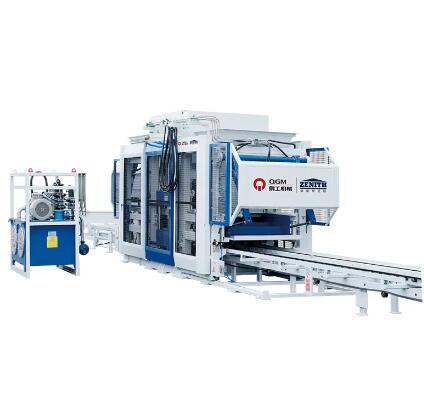The Environmental and Economic Benefits of Intelligent Non-Burning Brick Machines
2024-09-11
The construction industry is one of the biggest contributors to environmental degradation, with brick-making being a major culprit. Traditional kiln-fired bricks generate significant amounts of pollution, and the industry’s reliance on fossil fuels poses long-term environmental challenges. However, the introduction of the Intelligent Non-Burning Brick Machine has sparked a new era of sustainable brick production, offering numerous environmental and economic benefits.
Tackling Environmental Challenges in Brick Production
Traditional brick-making methods rely heavily on firing bricks in kilns, which burns fuel and releases harmful emissions such as carbon dioxide (CO2) and sulfur oxides (SOx). This not only contributes to air pollution but also exacerbates global warming. The shift to non-burning brick production addresses these challenges in several ways:
1. Zero emissions: The intelligent non-burning brick machine eliminates the firing process, producing no harmful emissions. By avoiding the use of fossil fuels, it significantly reduces the industry’s carbon footprint.
2. Waste recycling: Non-burning brick machines use materials like fly ash, slag, and other industrial byproducts. This prevents these materials from ending up in landfills while simultaneously producing sustainable building products.
3. Energy efficiency: Since the machine uses automated systems and does not require the immense energy needed to fire kilns, it consumes far less energy. This leads to a greener production process.
Economic Benefits of Using Non-Burning Brick Machines
Aside from the environmental advantages, there are numerous economic benefits to adopting intelligent non-burning brick machines for large-scale production.
1. Lower Production Costs
One of the biggest financial advantages of using a non-burning brick machine is the reduction in energy costs. Firing bricks in kilns is energy-intensive and expensive, whereas the non-burning process uses significantly less energy. With no need for kilns or fossil fuels, the operating costs of non-burning brick machines are dramatically lower.
2. Automation and Labor Efficiency
With intelligent automation, these machines reduce the need for manual labor and improve productivity. The incorporation of AI-driven controls enables precise material mixing, compression, and curing, all managed with minimal human oversight. This reduces errors, optimizes material usage, and speeds up production.
For companies that operate on a large scale, this automation translates to:
- Lower labor costs.
- Higher production output.
- Increased profitability due to the faster manufacturing cycle.
3. Durable and High-Quality Bricks
Bricks made by intelligent non-burning machines are uniform in shape and high in strength. Advanced compression technology ensures that each brick is made with consistent quality, minimizing defects and reducing waste. As a result, these bricks have longer lifespans and lower maintenance costs compared to traditional bricks, adding long-term economic value to construction projects.
4. Using Industrial Waste
The ability to incorporate waste materials such as fly ash, slag, and sand into the brick-making process makes these machines particularly attractive for industries looking to minimize waste disposal costs. By reusing industrial byproducts, companies can cut down on the cost of sourcing raw materials, making the production process both economical and sustainable.
Long-Term Value for the Construction Industry
The integration of Intelligent Non-Burning Brick Machines into construction projects brings lasting value. Not only do these machines support green building practices, but they also align with global sustainability goals, which will likely become stricter over time. Industries that adopt these machines now can stay ahead of regulatory changes and consumer demand for eco-friendly building solutions.
Key Takeaways for Sustainable Brick Production
1. Environmentally conscious: Non-burning bricks help reduce carbon emissions and air pollution, promoting a cleaner, healthier planet.
2. Cost-effective: With lower energy consumption, labor efficiency, and the use of recycled materials, non-burning brick machines are financially beneficial.
3. Durable and reliable: The bricks produced are of high quality, with superior strength and longevity, making them a smart investment for builders.
4. Adaptable technology: These machines can be used in various environments, from small-scale housing projects to large urban developments, making them versatile across industries.
Conclusion
The adoption of Intelligent Non-Burning Brick Machines offers both environmental and economic rewards for the construction industry. By moving away from traditional kiln-fired methods, companies can significantly reduce their carbon footprint, save on production costs, and create high-quality, durable bricks using sustainable materials. As the demand for greener construction practices continues to grow, intelligent non-burning brick machines will be a vital part of the solution.



